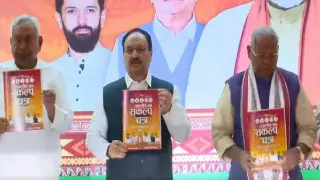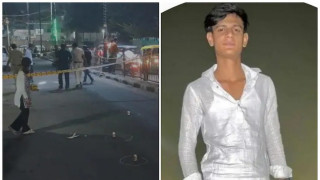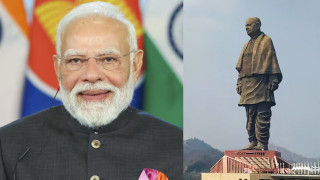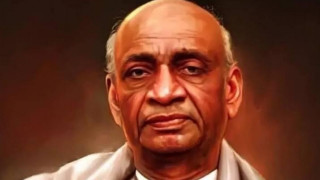
X/ANI
In a recent statement, Rahul Gandhi, a prominent political figure in India, expressed his views on the ongoing caste census in Bihar, framing it as a crucial national analytical snapshot. This perspective sheds light on the significance of the census beyond regional considerations, emphasizing its potential impact on understanding the diverse social fabric of the entire nation.
As the Bihar government undertakes the monumental task of conducting a comprehensive caste census, political leaders across the spectrum are closely monitoring its progress. Rahul Gandhi's recent comments underscore the broader implications of this census, positioning it as a critical tool for analyzing the social dynamics that shape the country.
Bihar, with its rich cultural history and diverse demographics, serves as an ideal microcosm for understanding India's complex societal structure. By conducting a caste census in Bihar, policymakers aim to glean insights into the intricate tapestry of caste relationships, social hierarchies, and economic disparities that exist throughout the nation.
Rahul Gandhi's characterization of the Bihar caste census as a "national analytical snapshot" suggests that its findings could transcend regional boundaries. The data collected has the potential to provide a comprehensive overview of caste dynamics, offering policymakers valuable insights into areas such as education, employment, and socio-economic disparities that impact various communities across the country.
One of the key aspects highlighted by Gandhi is the need to comprehend the vast diversity within the country. India's myriad cultures, languages, and traditions often intersect with the complex caste system, influencing social mobility and access to resources. A detailed analysis of caste demographics can contribute significantly to crafting targeted policies that address these nuances.
As India strives for social justice and inclusive growth, the information gathered through the caste census can play a pivotal role in shaping effective policies. Rahul Gandhi's endorsement of the census as a national analytical snapshot suggests a broader vision, wherein the findings can be used to formulate policies that address historical injustices and uplift marginalized communities.
While the caste census presents an invaluable opportunity to gain insights into the social structure, it also poses challenges in terms of data accuracy and interpretation. Rahul Gandhi's acknowledgment of the census as an analytical snapshot implies a recognition of the potential hurdles and the need for careful consideration in utilizing the data for policy formulation.
Earlier, on Friday, RaGa said his party will change the status quo in the country, mentioning that he promised to create over ₹ 5,000 crore of dedicated corpus to encourage entrepreneurship among the youth to enable them to start their own businesses. The Bihar caste census, in Gandhi's view, is not just a regional exercise but a crucial tool for shaping the future trajectory of the entire nation.













Copyright © 2025 Top Indian News
